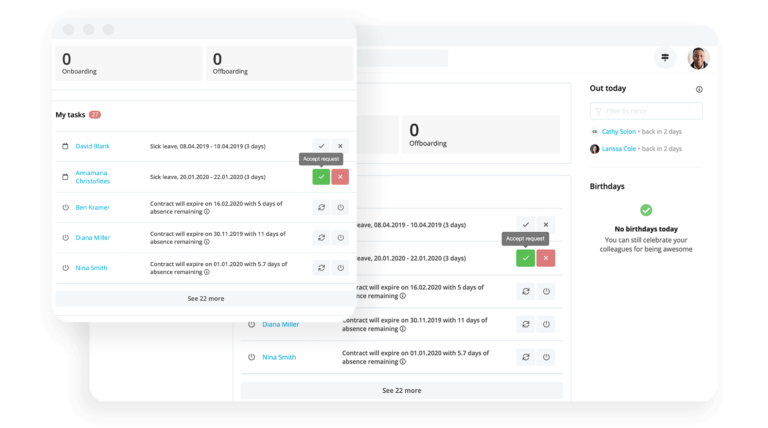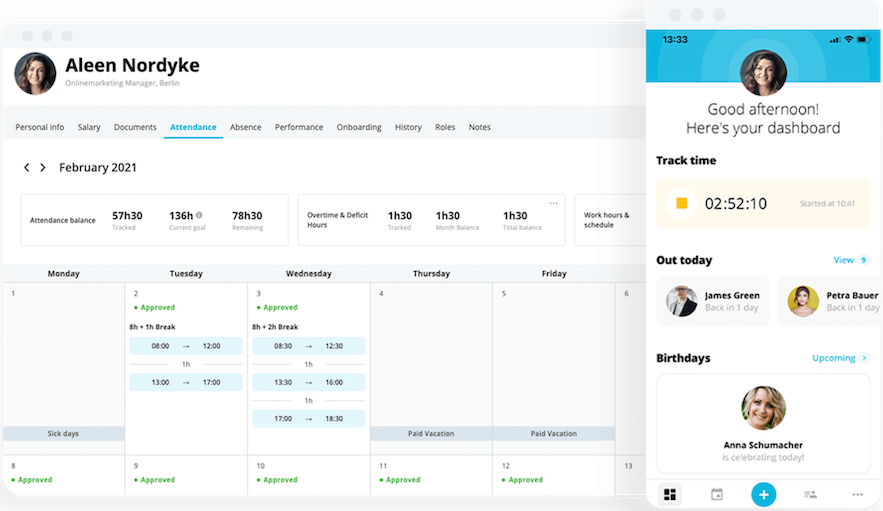7 things HR should do in a startup

What does HR do in a startup? A great HR team is going to partner with their founders to build, manage and develop a team for long-term success. They're also going to lay the foundation for compliance, policies and core HR processes, too.
HR for startups is itself a unique breed. In many cases, a startup is truly ‘starting from scratch’ when it comes to their HR processes. At the same time, few businesses move at the blistering pace and speed of a startup.
The thing that founders and leaders need to know is that HR can be your competitive advantage. It can help your organisation perform better and grow even faster. In this guide, we lay out the case and how to make it happen.
Book a demo to see why 15,000 companies trust Personio with their HR work.
Should startups invest in their HR?
Any startup is going to rely on its top performers to help advance their product or service, grow their business and hit their goals. Proper HR for startups can help support and protect your most important asset: those top performers on your team.
Take a company like Raisin, who made the investment through Personio's HR software during a critical phase of growth.
As Dr. Lea Schroeder, their VP of Talent & Culture, puts it:
"Personio offers a great opportunity for startups to bring structure into their HR processes and to optimise them based on the data."
The issue is that HR requires a lot of training and a lot of specialist knowledge. Founders and CEOs of startups often take on the project of managing HR without having either, which inevitably causes issues with compliance and process management.
These issues then trickle down to the entire company. The result can mean disorganised processes, frustrated employees and an en masse reduction of workforce productivity. Already out of the gate, so much potential is out the window.
Startups should invest in HR, so that they can protect and perfect their most important asset: their people. When they have processes catered to how their employees work, they can help boost performance (and avoid running afoul of employment law, too).
10 key benefits of HR for startups
Some of the top benefits that human resources can bring to a startup include:
Talent acquisition: Helping attract, vet and hire top talent.
Compliance: Ensuring compliance with UK employment laws.
Employee onboarding: Speeding up the integration of new hires.
Employee development: Supporting employee growth through training.
Retention strategies: Boosting employee retention rates.
Performance management: Improving overall employee performance.
Scalability: Adapting HR processes as the company scales and grows.
Diversity and inclusion: Promoting diversity and other initiatives.
Cost efficiency: Reducing costs through effective HR practices.
Data-driven decision-making: Providing insights for informed decisions.
Frankly, without an HR department, most startups simply leave all of the above benefits up to chance. The responsibilities of your HR department, or whoever is managing it, should be to reduce that variance and create more of a ‘sure thing’ from your staff.
In that sense, HR for startups is good because it fosters a sense of consistency. Especially as you scale, this consistency can prove invaluable – it means that the processes you introduce can grow, at scale, to match your company’s growing needs.
Personio knows HR for startups
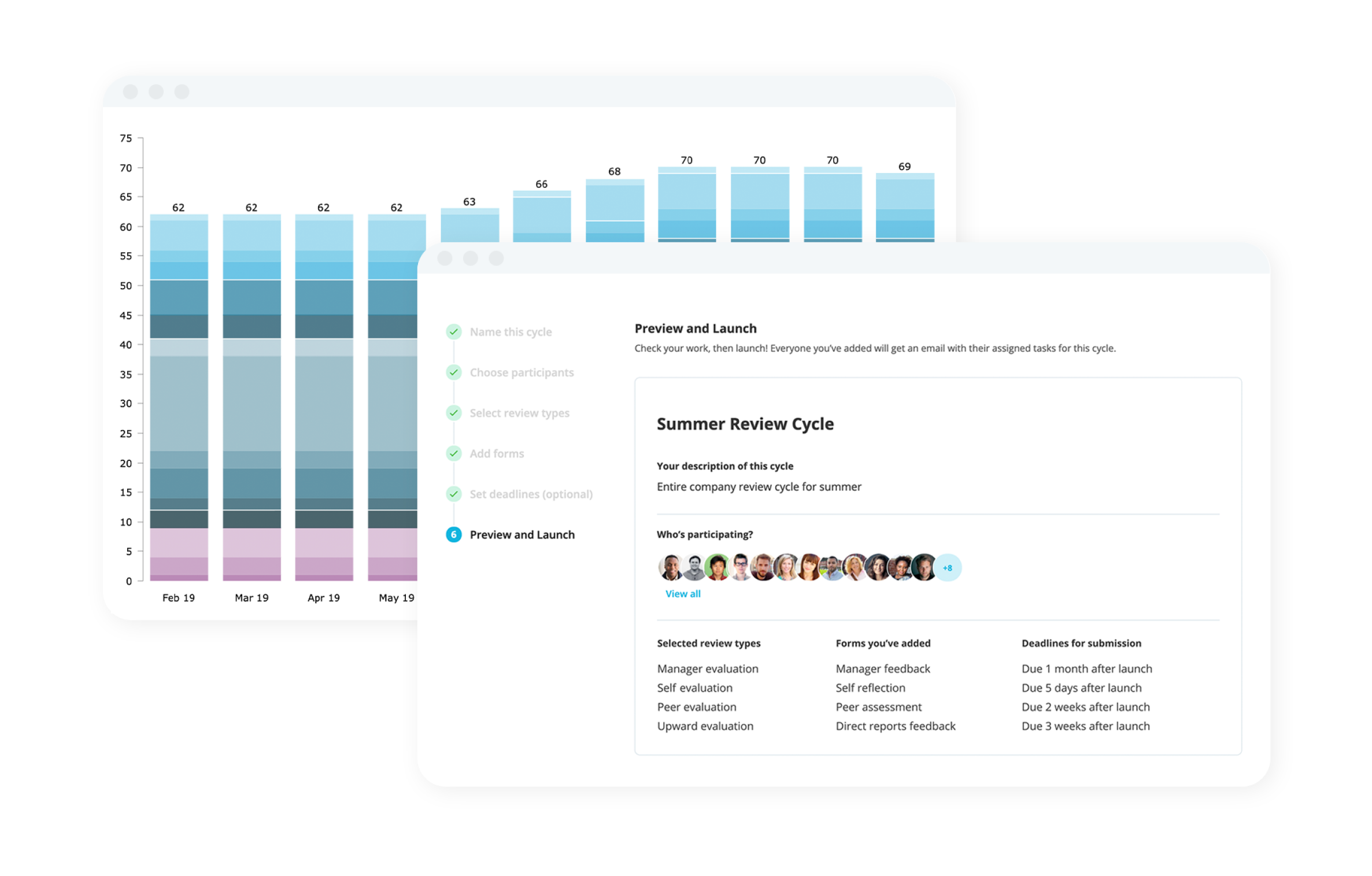
We've helped teams like Raisin, Getsafe and Mentimeter scale their HR work to supercharge their growth. Speak with an expert for us to help you do the same.
Speak with an expertWhat should HR do in a startup?
To help build your HR function, we've listed the seven key areas where HR can have the great impact in the shortest space of time.
1. Create a company handbook and HR policies
Your HR function should begin by establishing familiar baselines for the rules and operating procedures of your organisation. This typically involves creating some kind of company or employee handbook that makes everything visible to employees.
This would often include:
Equal employment opportunity (EEO) policy: Demonstrating the organisation's commitment to a discrimination-free workplace.
Code of conduct and ethics: Sets clear standards of behaviour and ethical conduct expected from employees.
Employee classification: Clarifies employee classifications and their associated rights and benefits.
Leave policies: Outlines rules for vacation, sick leave, parental leave and unpaid leave, along with eligibility criteria and request procedures.
Confidentiality and data protection policies: Addresses the handling of confidential company information and personal data in compliance with data protection laws.
2. Attract and grow your top talent
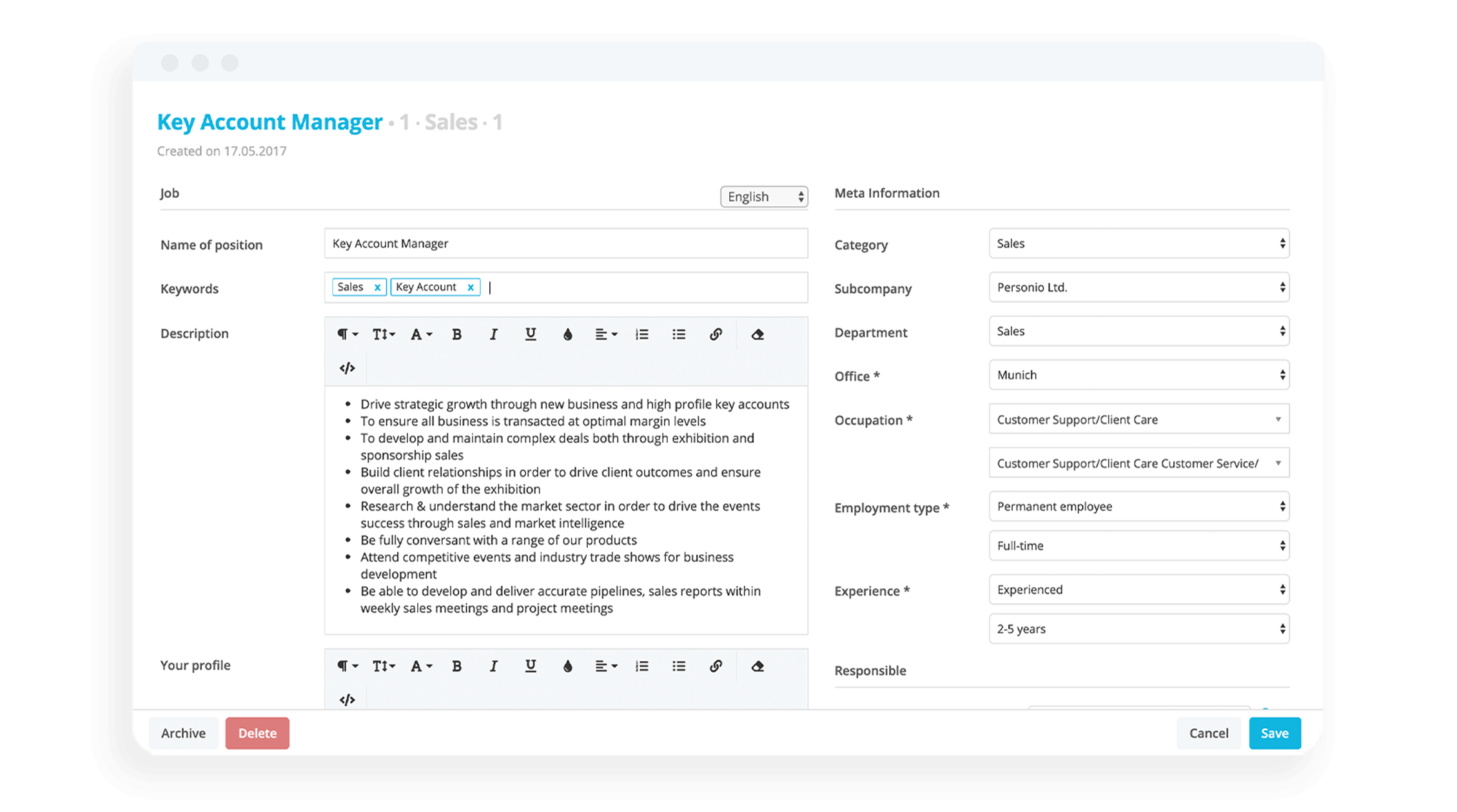
An HR software enables your staff by helping bring them through the door. As your startup grows, so too do your recruitment needs. Your HR department will be a critical lever in terms of growing your staff and maintaining a culture of excellence.
How? The first is the logistical side of things. Planning interviews, designing the process, hosting those interviews, reaching out to candidates, gathering feedback and helping make critical hiring decisions. That’s a lot of work for any one founder or CEO.
Second is raising the bar. Maintaining a high bar for talent is critical, especially when you can only hire once for a role per quarter (or per year). You need to ensure that you’re hiring exactly the right person, and your HR team can help you do that.
Lastly, by making sure that key talent doesn’t slip through your fingertips. Candidate experience truly matters, and you want to deliver an experience that an employee will love – even before their first day on the job.
3. Maintain excellence in all the fundamentals
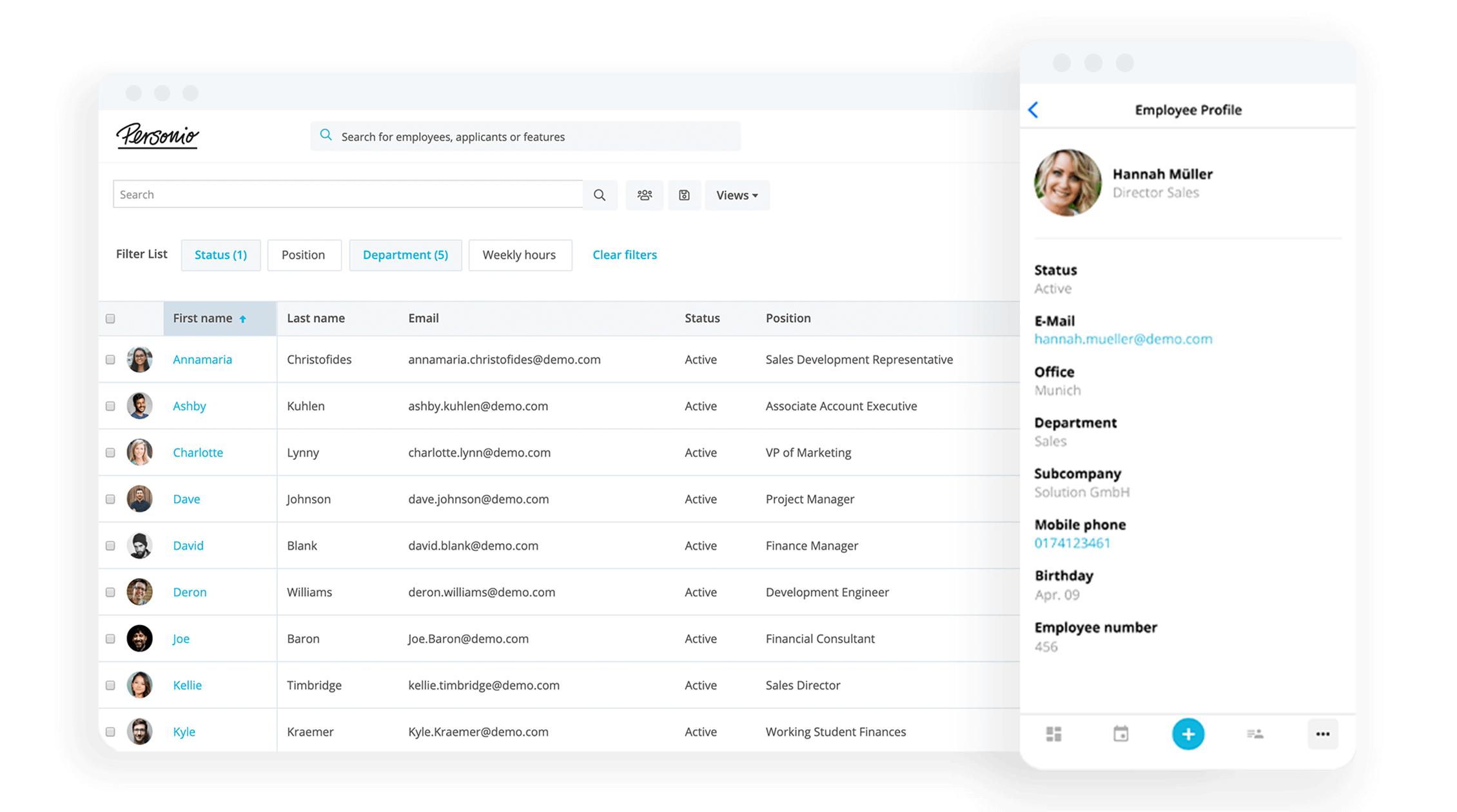
This is where things get a bit dull. But, don’t let that distract you! Getting all of the documents and policies correct is absolutely fundamental. If you don’t do it, you run a lot of risk – potentially even being in violation of the law.
HR for startups should spend the majority of their time in this section of work. They will need to build out a powerhouse in terms of document management, employee files, policies and everything else that helps ensure what is known as organisational effectiveness.
Ask yourself:
Do we currently have employment contracts?
How are these contracts signed?
Where are these contracts stored?
What kind of policies do we currently have?
Do we have a vacation or time-off policy?
Have we conducted a health and safety (H&S) assessment?
Do we have everyone’s right to work documents?
All of these things are critically important. And, most of all, cannot simply be kept on an Excel sheet. Many HR teams, or whoever is managing an HR function, will turn to some kind of HR system to make this a reality.
For the busy CEO: Another tip when it comes to HR for startups is to leverage employee self-service more and more. Trust your employees to keep their documents up to date, and don’t make updating critical information a barrier to entry for them – or it might never happen.
For the entire company: Having a holiday policy is one thing, but how do you track it? Even in a company of 20 people, the sheer amount of requests and tracking can be overwhelming. Think about not only how you structure a holiday policy, but how you manage it, as well.
4. Ensure onboarding runs smoothly
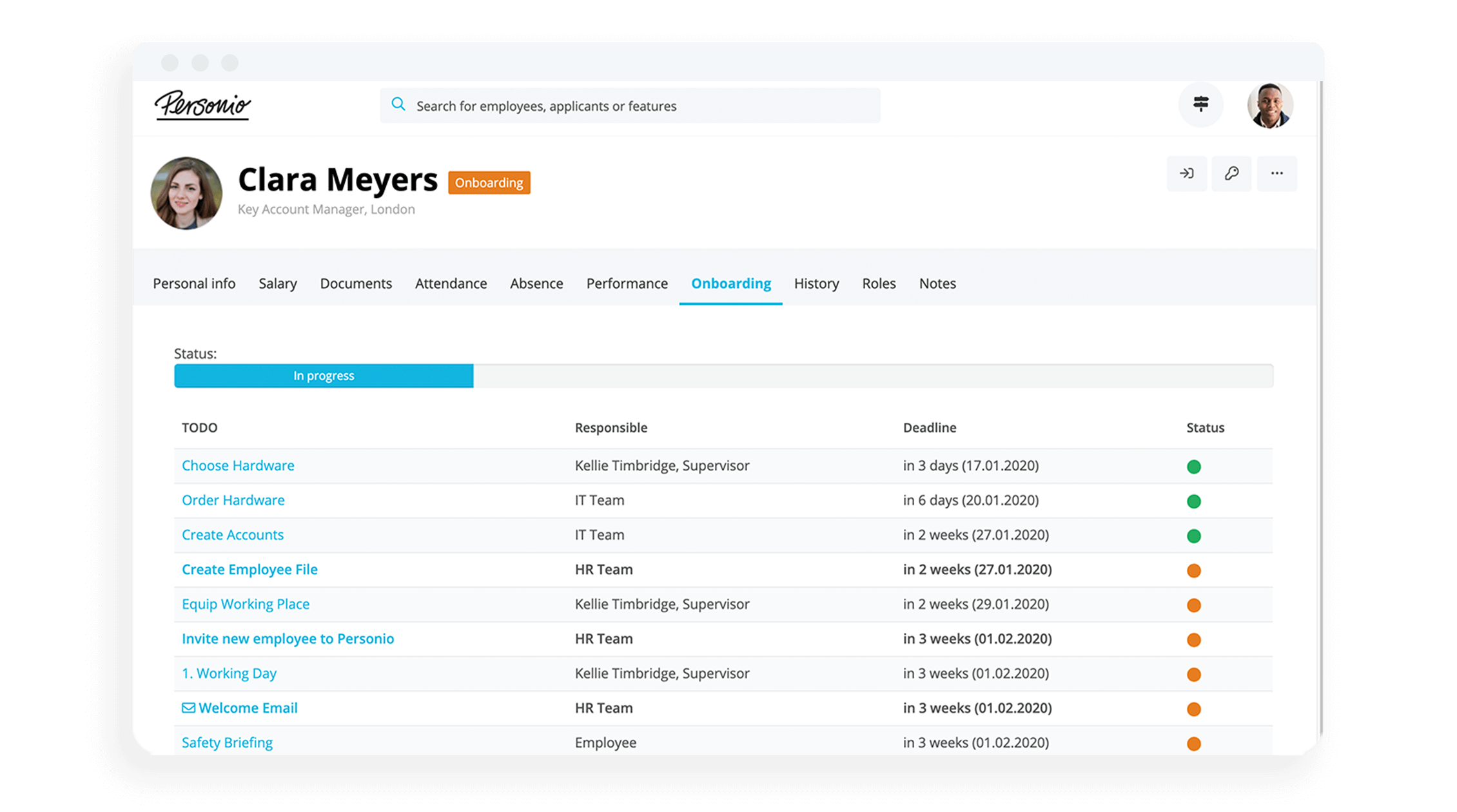
It’s no wonder why onboarding is so often profiled as one of the most important stages of employee experience. First impressions matter, and employees starting out at a new company need to hit the ground running – especially at startups.
A critical role that HR has to play here is ensuring that this process runs smoothly, and that it works. But, it’s very hard to do both at the same time – if they are both in disarray.
Let’s start with the first. To deliver a successful onboarding program at scale, it needs to be as automated and streamlined as possible. That means your new employee needs to receive all their tasks, and reminders, when they need them and when they need to get done.
Only then can you focus on the more qualitative elements of onboarding, because you will have more time. Do you look to write a company handbook for new employees? Institute a buddy system? Maybe start an AMA session with the CEO for some top-down culture exchange?
For CEOs: Creating an onboarding workflow can save you an incredible amount of time and money with new employees. You can ensure they are asked for all the right documents, like their new starter form or right to work documents, in a single click of a system.
For HR: Having an onboarding workflow that you can edit and alter and grow over time is incredibly valuable. It means you can track the success of your program and make changes as they appear – and then deliver them at scale.
For the entire company: Now, everyone can have an amazing start into their careers. Engagement goes up, productivity goes up, long-term retention goes up and your entire company benefits. A real win-win proposition.
5. Create growth & development programmes
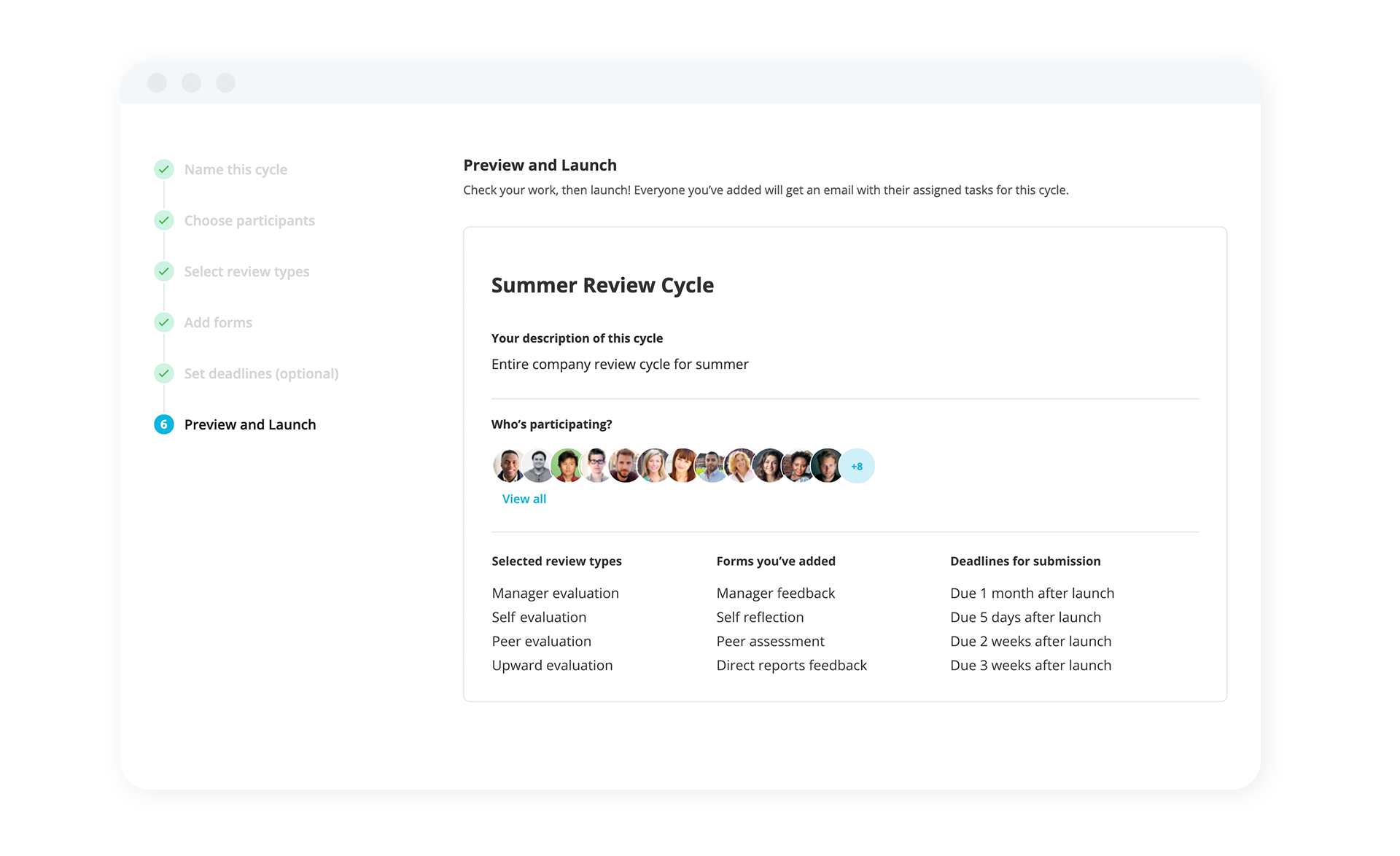
Performance reviews. When managed incorrectly, nobody ever looks forward to them. They are often considered a burden to manage, which then trickles down into every other facet: a burden to host and a burden to attend!
But, this is where HR for startups can play a vital role. Performance reviews matter, and they have a direct influence on employee happiness and productivity. When you run reviews regularly, and conduct them properly, they boost business.
Your HR team should have their finger on the pulse come performance review season. But, they should focus less on the conversations actually happening, and more on the quality of those conversations. So, how do you do that?
By creating automated performance management cycles! By keying in on these cycles, you can ensure that they are never delayed, that they are equitable (because information is housed, transparently in one place) and that they actually drive performance.
6. Build and maintain an inclusive and diverse work environment
An inclusive and diverse working environment can help take your startup from a scrappy and small operation into a successful one in record time. Some of the benefits include:
Enhanced creativity and innovation
Better, faster problem-solving
Increased employee engagement and retention
Access to a broader talent pool
Enhanced employer brand
To do this, your HR team needs to be empowered to purchase some diversity and inclusion initiatives that can move the needle. Consider some of the following as an example:
Recruitment and hiring | HR can implement diverse recruitment strategies, review job descriptions for inclusivity, and actively seek diverse talent. |
Policy development | HR can create and enforce policies that promote diversity and inclusion, including anti-discrimination policies and inclusive benefits packages. |
Monitoring and reporting | HR can track diversity metrics and report progress to leadership, identifying areas for improvement. |
Leadership and accountability | HR can work with leadership to ensure diversity and inclusion goals are embedded in the company's strategic initiatives, holding leaders accountable for progress. |
7. Gather employee feedback
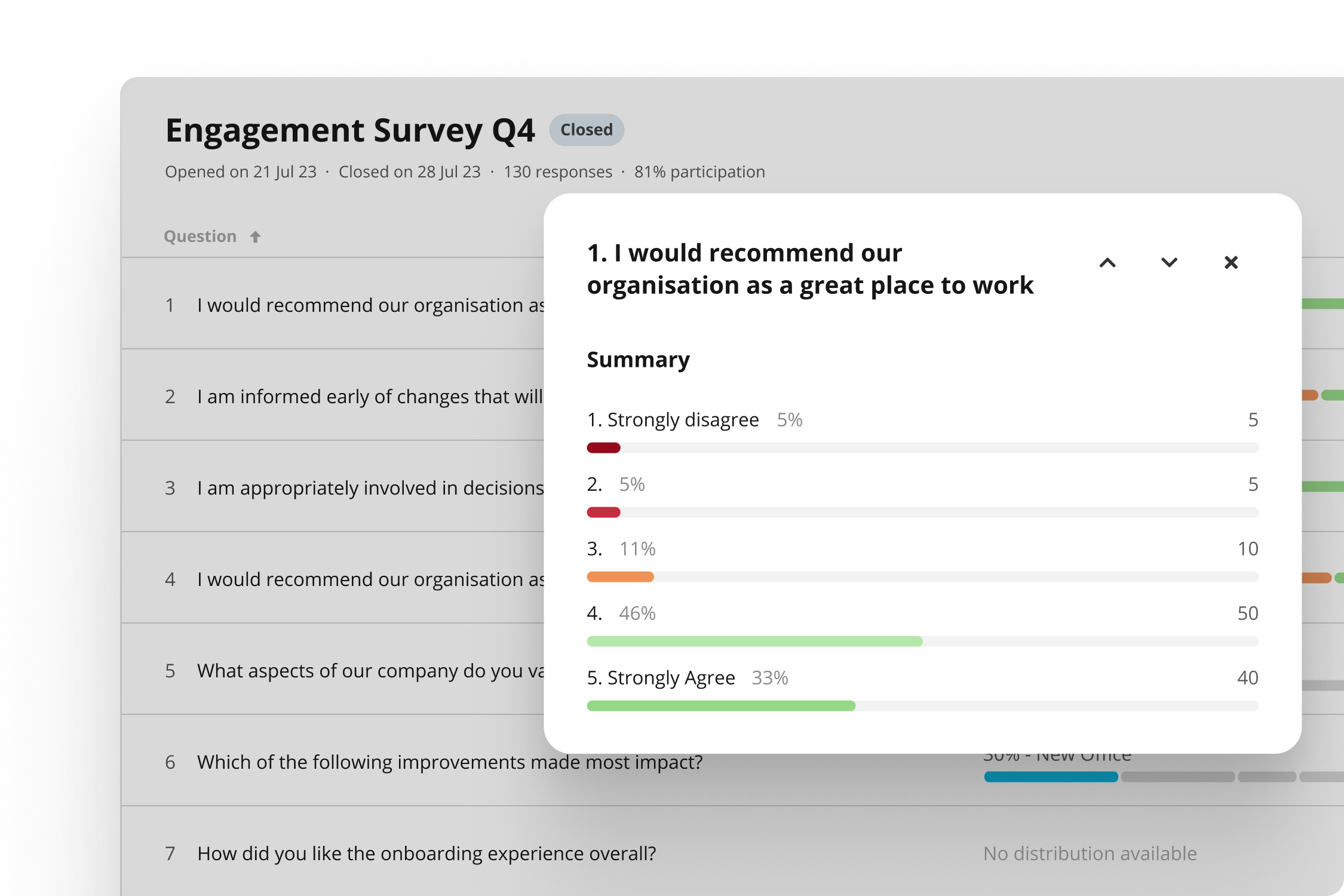
Especially for a team that is growing faster, like in a startup, it is absolutely imperative for your HR team to keep the pulse and understand employee sentiment. A good way to do this is by running recurring pulse surveys.
These surveys typically ask questions like:
Do you feel proud to work for [company]?
Would you recommend working at [company] to a friend?
How would you rate your direct manager?
Questions like these can reveal insights that your HR team can use to take action. For instance, if you find a lot of your employees struggling with burnout, you can begin to roll out some mental wellbeing initiatives and then track that progress next survey.
How do you build an HR department for startups?
The structure of your HR department may vary wildly. It depends on the size of your team, your capacities and who you have to get the job done. For our purposes today, let’s suggest that a founder, CEO or high-level executive is currently running your HR efforts.
Here's the process we would recommend:
Identify current processes, blockers and goals: Start by assessing your startup's current HR processes. Identify what's working well and what needs improvement. Define clear HR goals aligned with your business objectives to guide your department's development (headcount, revenue growth, satisfaction, etc.).
Ensure compliance and legal documentation: Compliance is crucial. Consult with legal experts or HR specialists to ensure your startup adheres to local labour laws and regulations. Establish essential legal documentation, including employment contracts, confidentiality agreements and workplace policies.
Set up payroll process: Create a streamlined payroll process to ensure accurate and timely compensation for employees. Choose a payroll system or provider that aligns with your startup's needs and legal requirements. This step is essential for maintaining trust and compliance.
Create a hiring and staffing forecast: Forecast your startup's hiring needs based on business growth projections. Determine the roles and skills required to achieve your goals. Develop a hiring plan that outlines recruitment strategies, timelines and resources needed to attract top talent.
Most importantly: Build out your HR tech stack
To support HR functions efficiently, assemble a robust HR tech stack. Here are some essential tools often used by startups:
Applicant tracking system (ATS): Streamlines recruitment by managing job postings, applicant tracking, and candidate communication.
HRIS (Human Resources Information System): Organises and centralises employee data, streamlining HR tasks.
Payroll software: Automates payroll calculations, tax deductions and compliance reporting.
Benefits administration tool: Helps manage employee benefits, such as healthcare and retirement plans.
Time and attendance software: Tracks employee work hours and supports attendance management.
Employee self-service (ESS): Empower employees to access HR information and manage certain tasks independently.
Performance management software: Facilitates performance appraisals, goal setting, and feedback.
Onboarding software: Streamlines the onboarding process for new hires.
Legal and compliance tools: Tools for managing compliance with labor laws and regulations.
Communication and collaboration tools: Facilitates HR team collaboration and employee communication.

Personio can help. Speak with one of our HR experts today to learn more about our HR solution for startups. We can also show you how our HRIS implementation plan works to get you up and running in weeks, not months!
Discover a cloud-based HR software you can trust
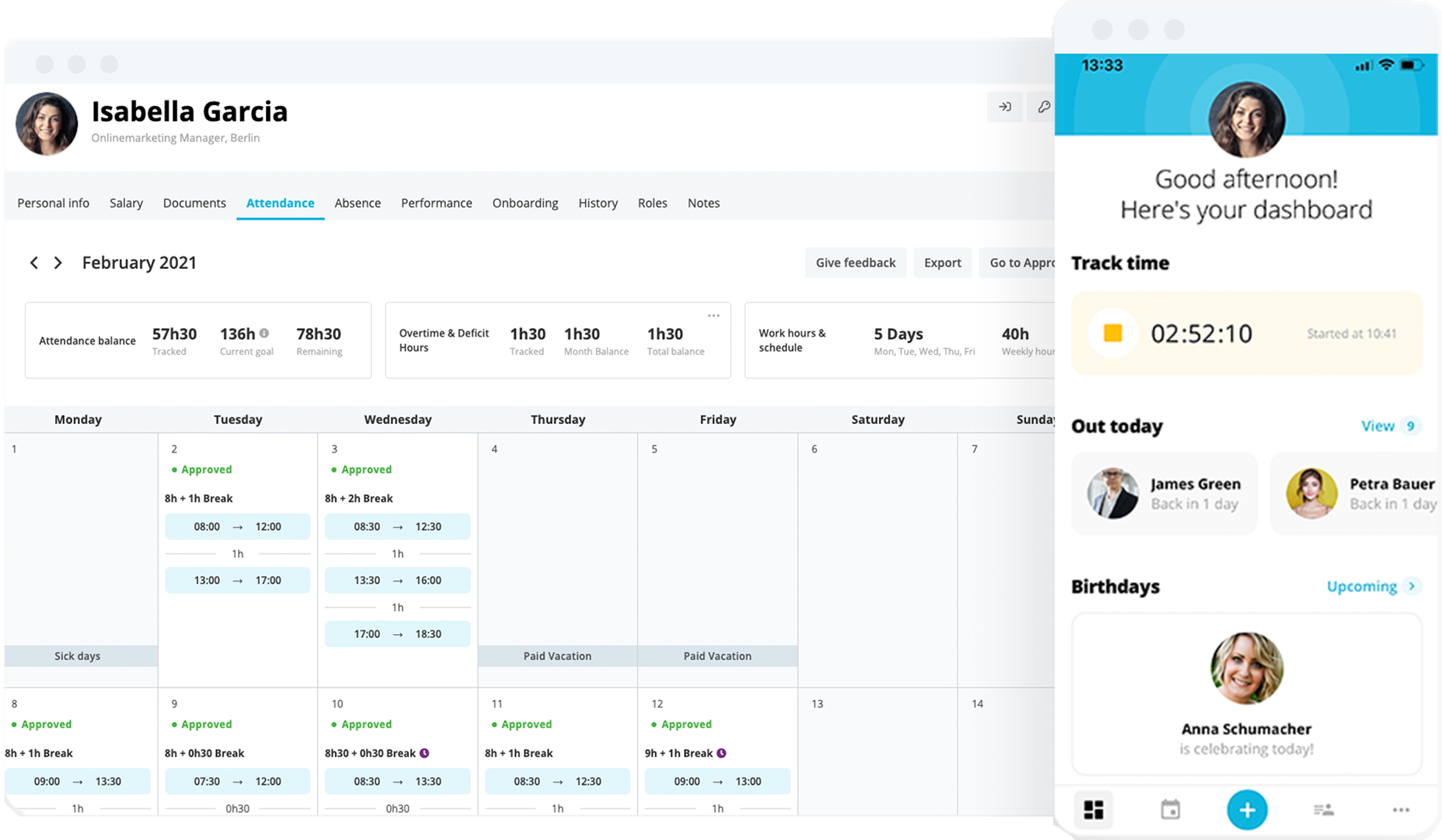
Especially for startups who are growing quickly, cumbersome solutions can become hard to manage and hard to stomach from a cost perspective. Learn more about how a cloud-based HR solution might be right for you by clicking the article below.
Learn more about cloud softwareThe best HR software for startups
Every startup is unique. That makes deciding on the right HR software for your needs unique, too, because you may have something you specifically want out of a software.
The most important thing you can do is put a strong foundation in place. You really need to nail the basics, so that you can make the jump – just like in any business.
An HR software, like Personio, is designed to complement the work of your expanding HR department structure. So, as you bring in specialists who can elevate your work, there’s no need to review or revise the basics.
Personio’s HR software is there to help you get the basics right, while upgrading your people operations for the future. That way, as your business grows, you have a solution that you won’t outgrow – in fact, it will grow alongside you.
